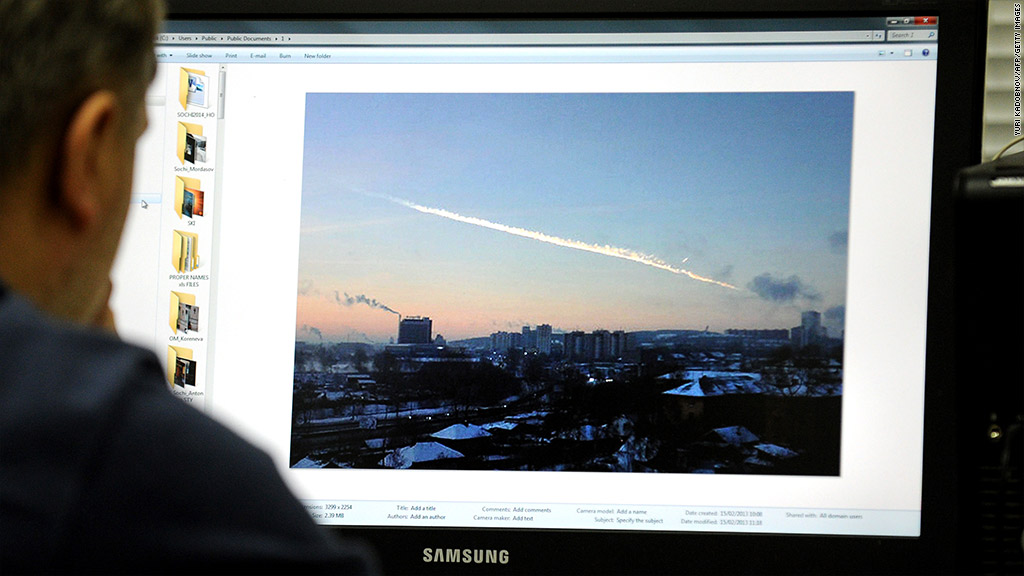
If your house is hit by a space object -- such as the remnants of the meteor that stunned people in the Urals region of western Siberia -- it won't be a major hit to your bank account.
"Your insurance covers falling objects," said Robert Hartwig, president of the Insurance Information Institute.
Meteorites -- which are rocks formed after a meteor burns in the earth's atmosphere -- have crashed through roofs rarely over the years. But when they do, insurers paid for the damage if people had homeowners' policies, according to Hartwig.
A more common problem is "blue ice," the frozen sewage that occasionally falls from planes. That is also covered if it falls on your house, said Hartwig.
The event in Russia was the most serious one in many years, a once-in-a-century event, according to Laurie Leshin, a former NASA scientist and Director of the Center for Meteorites Studies at Arizona State University. It injured more than 700 people and damaged nearly 300 buildings, according to the state-run RIA Novosti news agency.
Space objects rain down on earth all the time, but rarely do they injure people or damage property, according to Leshin, who is now Dean of Sciences at Rensselaer Polytechnic Institute.
"The earth is pelted with 40 tons of space debris a year," she said. "Most of that is in teeny dust particles."
To do real damage, a meteor usually has to be bigger than a Volkswagen when it enters the atmosphere, she said.
"There was a case where a meteor(ite) crashed through a roof, bounced off a sofa and hit somebody in the leg," said Leshin. "But I know of no cases in which anyone was killed."
Russia seems to attract meteors. A 1908 explosion over Siberia was the largest impact event in recorded history, with estimates of the energy released from the blast equivalent to as much as 1,000 times that of the atomic bombs dropped on Hiroshima.
It devastated an area nearly the size of Rhode Island. If that happened in even a sparsely populated part of the United States, it would be cataclysmic, said Hartwig.
"That would be an extraordinarily expensive event for the insurance industry," he said.


